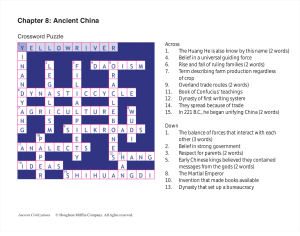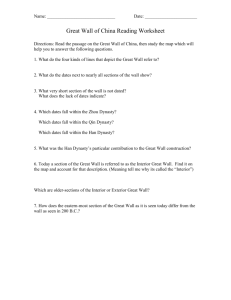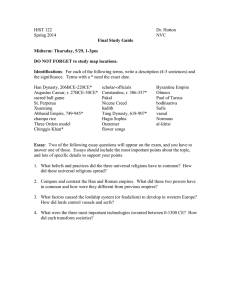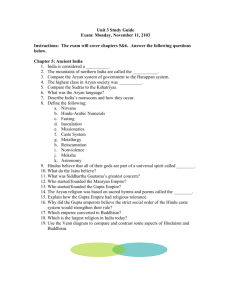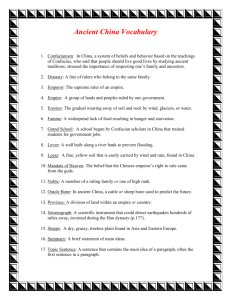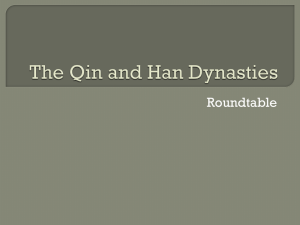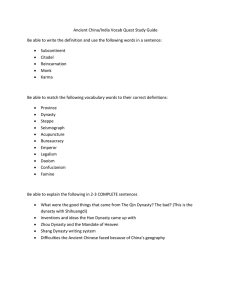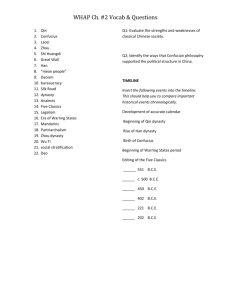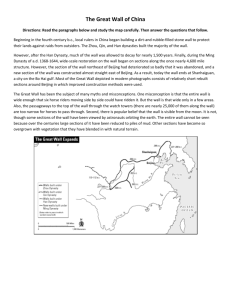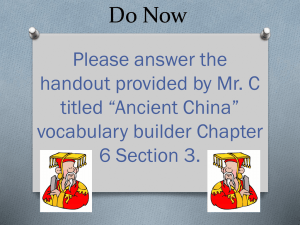Ancient China Vocabulary: Key Terms & Definitions
advertisement
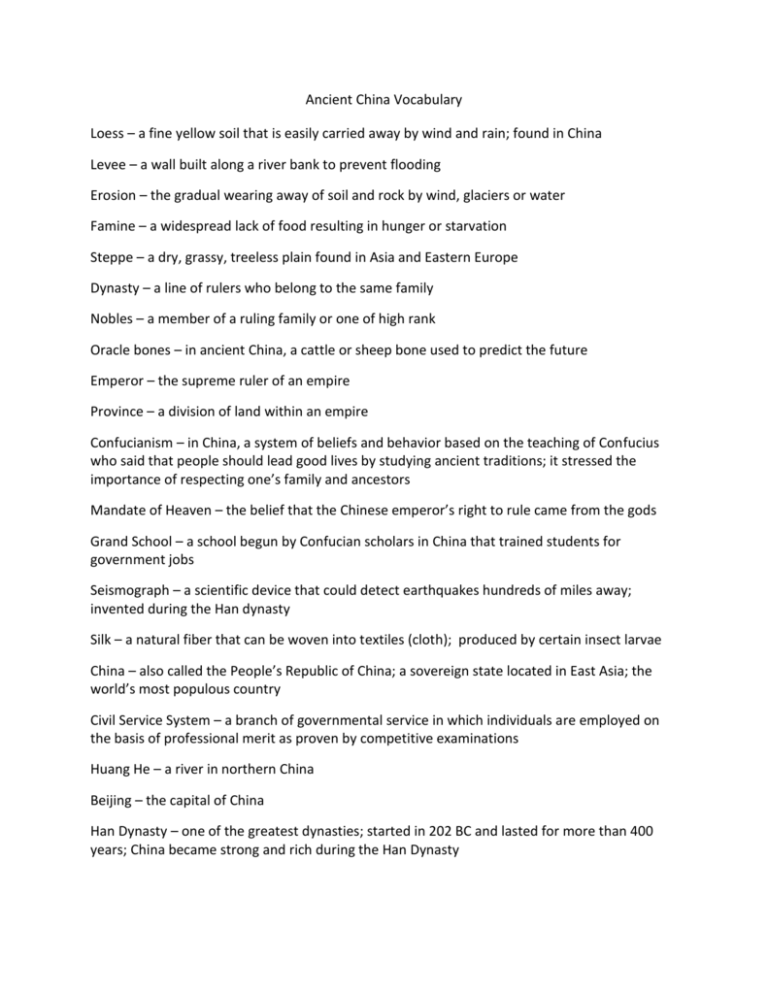
Ancient China Vocabulary Loess – a fine yellow soil that is easily carried away by wind and rain; found in China Levee – a wall built along a river bank to prevent flooding Erosion – the gradual wearing away of soil and rock by wind, glaciers or water Famine – a widespread lack of food resulting in hunger or starvation Steppe – a dry, grassy, treeless plain found in Asia and Eastern Europe Dynasty – a line of rulers who belong to the same family Nobles – a member of a ruling family or one of high rank Oracle bones – in ancient China, a cattle or sheep bone used to predict the future Emperor – the supreme ruler of an empire Province – a division of land within an empire Confucianism – in China, a system of beliefs and behavior based on the teaching of Confucius who said that people should lead good lives by studying ancient traditions; it stressed the importance of respecting one’s family and ancestors Mandate of Heaven – the belief that the Chinese emperor’s right to rule came from the gods Grand School – a school begun by Confucian scholars in China that trained students for government jobs Seismograph – a scientific device that could detect earthquakes hundreds of miles away; invented during the Han dynasty Silk – a natural fiber that can be woven into textiles (cloth); produced by certain insect larvae China – also called the People’s Republic of China; a sovereign state located in East Asia; the world’s most populous country Civil Service System – a branch of governmental service in which individuals are employed on the basis of professional merit as proven by competitive examinations Huang He – a river in northern China Beijing – the capital of China Han Dynasty – one of the greatest dynasties; started in 202 BC and lasted for more than 400 years; China became strong and rich during the Han Dynasty Great Wall of China – made of stones, bricks, tampered earth, wood and other materials; generally built along an east to west line across the historical northern borders of China
